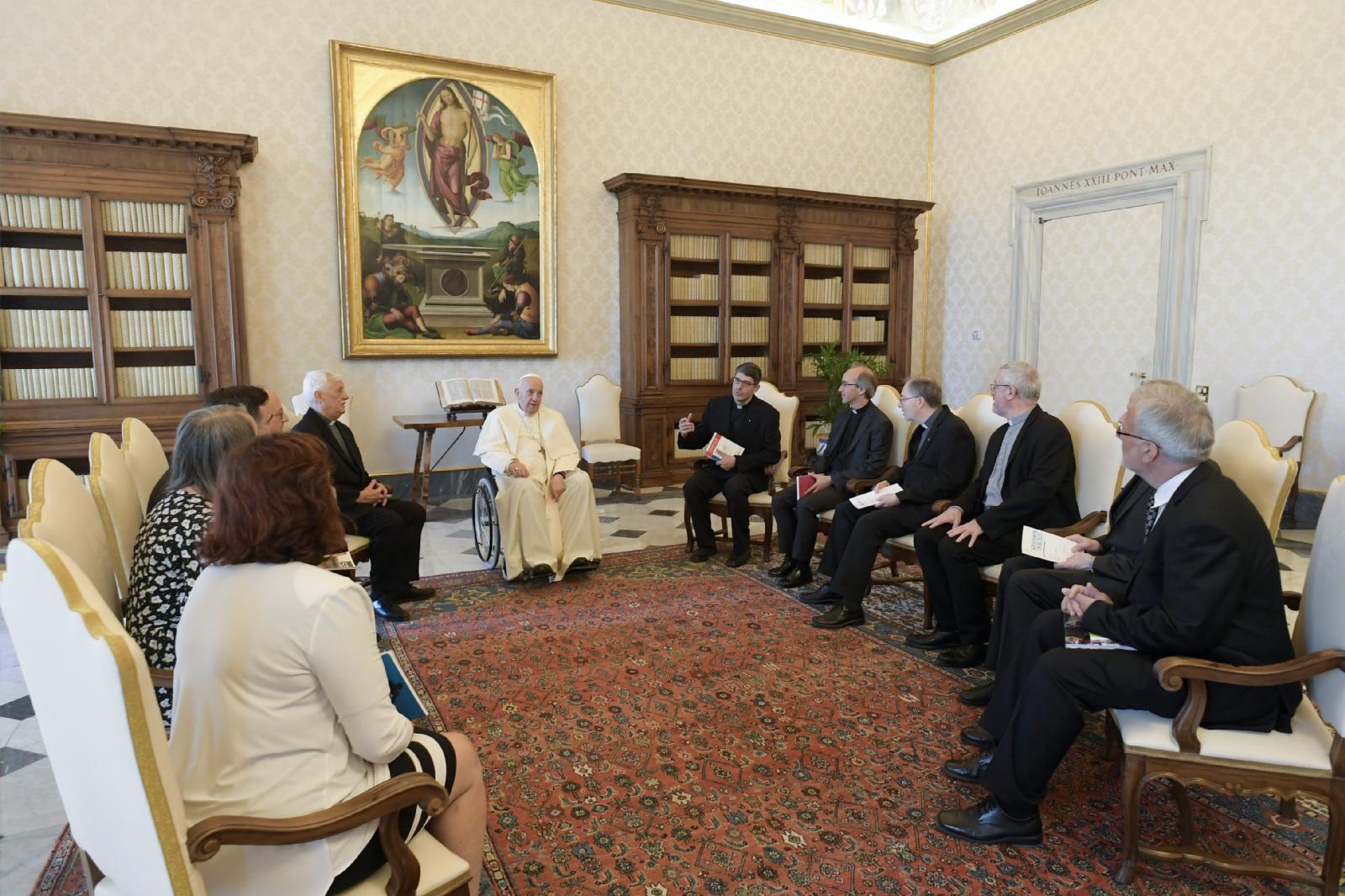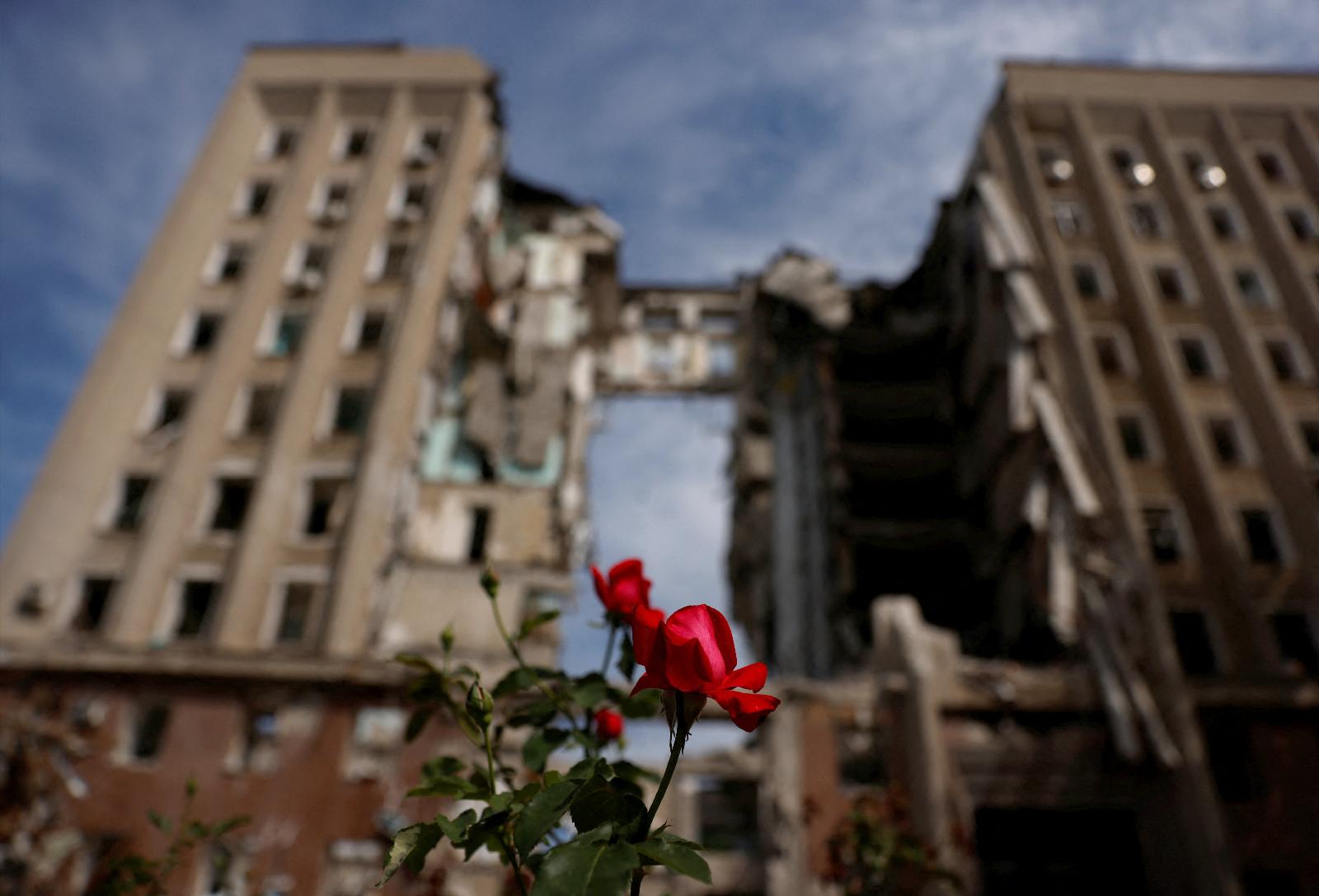Pope Francis has said he is “against turning a complex situation into a distinction between good guys and bad guys”, in remarks on the war in Ukraine from a May interview, published last week by the Jesuit review La Civiltà Cattolica.
“Here there are no metaphysical good guys and bad guys,” he said, and repeated his belief, first articulated in 2014, that “we are experiencing a third world war fought piecemeal”.
“While we witness the ferocity and cruelty of Russian troops, we should not forget the problems, and seek to solve them,” he said, noting in particular the influence of mercenaries and the arms trade on the ferocity of the conflict. He said it was “as if history has predisposed Ukraine to be a heroic country” which had fallen victim to the world crisis.
“What is before our eyes is a situation of world war, global interests, arms sales and geopolitical appropriation, which is martyring a heroic people.”
He added that his meeting with Patriarch Kirill of Moscow – which was scheduled for 14 June – had not been cancelled but postponed. He said he still hoped to meet the patriarch on a visit to Kazakhstan in September.
In a measure apparently intended to counter accusations of equivocation, Francis has assigned a group of cardinals to clarify Catholic doctrine on just war, according to a Ukrainian academic and social activist who spoke to him at an informal audience on 8 June.
In an article for the Religious Information Service of Ukraine, Myroslav Marynovych, vice-rector of the Ukrainian Catholic University, said that a small delegation visited Francis and “raised the issue of the ambiguity in Catholic doctrine regarding the concepts of ‘just war’ and ‘just peace’”.
“The Pope actively reacted to this proposal and agreed that such a clarification was needed,” wrote Mr Marynovych, adding that the Pope “had already instructed some cardinals to study this topic in more depth”.
The meeting was arranged by a mutual Argentine friend named only as Alejandro, who Mr Marynovych said was pained “that Ukrainian society perceives some His Holiness’s steps ambiguously”. Pope Francis has faced criticism for his diplomatic stance on the war in Ukraine and his alleged failure explicitly to condemn the Russian invasion.
Mr Marynovych reported that the meeting lasted for an hour-and-three-quarters. “The Holy Father began the meeting with the following words: ‘We can talk as much as we need,’ which unequivocally testified that the Pope did want to listen to us and understand all the peculiarities of the Ukrainian perception.”
The delegates said that the Vatican perceived Ukraine “through the Russian prism” and that “the time has come for the Vatican to develop its own Ukrainian policy, one not derived from its Russian policy”.
Among several points of discussion, the delegates said that “loving Russians means revealing to them the true scale of their crime, allowing them to feel the horror of what they have done, and ushering their souls towards sincere repentance”.
They also urged Francis to back Ukraine’s application for full membership of the European Union, and said that he agreed to voice his support at a meeting with the president of the European Commission, Ursula von der Leyen, at a meeting on 10 June. The Holy See Press Office confirmed after that meeting that they discussed the war in Ukraine and the “conclusions of the conference on the future of Europe and on the consequences for the future of the Union”.
Replying to the Ukrainian delegation, the Pope “listed all his steps taken based on his unequivocal desire to support Ukrainians who had fallen victim to this brutal and unjust war”, including sending cardinals there and making diplomatic interventions.
The delegates also repeated Francis’s standing invitation to Kyiv, reminding him that “all popes who visited Ukraine later became saints” – referring to St John Paul II.



 Loading ...
Loading ...